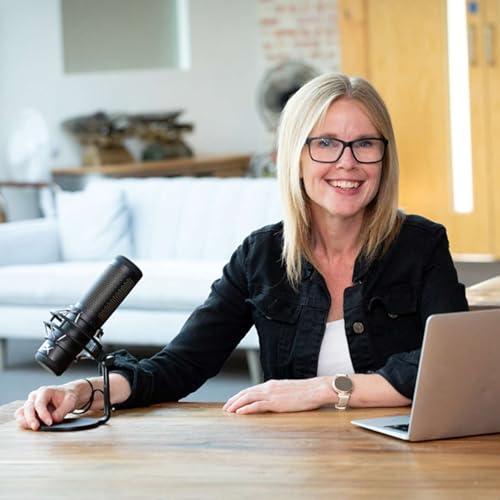
In conversation with Ndindi Kitonga - part 1
No se pudo agregar al carrito
Add to Cart failed.
Error al Agregar a Lista de Deseos.
Error al eliminar de la lista de deseos.
Error al añadir a tu biblioteca
Error al seguir el podcast
Error al dejar de seguir el podcast
-
Narrado por:
-
De:
This series critically explores adversity and trauma, what it is and how it plays out in an educational context. In this episode, Ndindi and I discuss systemic trauma, self-awareness and a brave space model.
Ndindi begins the show by discussing adverse childhood experiences (ACEs) and if following this, one can advocate for oneself in their journey to self-awareness. Ndindi then touches on personal experiences relating them to her teaching career and how she now pushes back on the silence surrounding adversity.
Adverse experiences can be complex and intergenerational and people tend to blame themselves without connecting to the wider context at play. This is because developing the tools to navigate our situation more broadly is often unaccessible.
I relate this to my personal experiences and with the difficulties I faced with not wanting to put the blame on those around me. As I journeyed through however, I could relate my experiences to the wider context, I began to view myself holistically and I believe this is when I truly started to develop self-awareness.
08.18 Ndindi explains how neoliberal healing and trauma conversations are individualised and how others don't see the bigger systematic picture. For this reason, she believes conversations shouldn't be ahistorical. Ndindi provides us with an example in the LA context, relating to the level of energy that is given to children who are resilient because they are poor and racialised. There's a need to understand why they are 'gritty' versus why they have disadvantaged lived experiences and how they can overcome this.
11.15: Moreover and in relation to practice around this topic, we turn our attention to available trauma-related resources. Ndindi talks about her school and how resources, if needed, will match the individual student whether that means the use of labelling or more clinical based work, though in her personal experience this exacerbated her trauma, and for this reason believes alternatives are a must.
12.53: By controlling certain types of behaviours, a traumatised person can be triggered and thus disempowered but through an education which includes the wider context, the outcome can be much more effective.
13.48: Ndindi believes the experiences of children and young people are already oppressed in society and don't always have options open to them. In this respect, their experiences are not always thought of as real and there's something in the way we use control in the name of safety and protection. She touches on how young people are developmentally a bit more risk taking in her school and how they are making decisions for themselves.
14.31: I respond to this by asking Ndindi to tell us more about the micro school she founded with her partner and why she came away from the mainstream. Building skills, literacies and criticality but also life as a young person, identity and having agency is important in an academic setting according to Ndindi and she feels this is not being addressed in a progressive way which contributed to her exiting the mainstream. She talks about the upheaval of running her school over the 11 years it has been running.
17.22: I then ask Ndindi what is it that she does differently in her school for the students to develop their self-awareness. Ndindi talks us through the use of a 'brave' space model over a more traditional 'safe' space. In this brave space, students learn the tools for self-regulation and learn how to build a community with each other. It's a space where the young people can practice and experiment with articulating their own needs and through peer to peer support they learn to be responsive to each others' needs too.
Through reflection, no matter how long this takes or however it is shaped, we can become more self-aware, heal from trauma and build positive and effective relationships.



